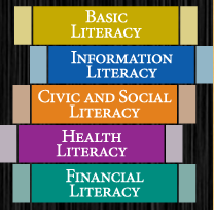There are few things as important as instilling a love of healthy eating in children. If you think convincing a kid to eat kale is a momentous task, you haven’t seen the Children’s Garden at the Glenside Library. Any child that participates by planting, watering, or picking vegetables is part of the Glenside Garden club.
Children’s librarian, Allison Frick, tells Garden Club members about how vegetables make us healthy.  She points to the garden’s rain barrel as a way to conserve water to use on the garden. Since all the vegetables and fertilizer is organic, there is no worry about what children may be handling or putting in their mouths. Kids are able to pick and eat vegetables right from the vine. Allison says that one goal of the garden is to grow heirloom veggies, like purple peppers, that children might not see in the grocery store. To encourage use of the vegetables once they leave the garden, the library provides recipe pamphlets for crops like rainbow chard, mint and summer squash with titles like “Five things to do with Zucchini!”
She points to the garden’s rain barrel as a way to conserve water to use on the garden. Since all the vegetables and fertilizer is organic, there is no worry about what children may be handling or putting in their mouths. Kids are able to pick and eat vegetables right from the vine. Allison says that one goal of the garden is to grow heirloom veggies, like purple peppers, that children might not see in the grocery store. To encourage use of the vegetables once they leave the garden, the library provides recipe pamphlets for crops like rainbow chard, mint and summer squash with titles like “Five things to do with Zucchini!”
Even though this is a children’s garden, there is a lot of adult involvement from patrons donating garden tools, like tomato cages, and plants. One patron wanted PA children to experience some of the vegetables that he grew up with when living in South Carolina. He donated seeds and seedlings for collards and wax beans. A local rabbi donated horseradish plants to be ready in time for Passover.
a children’s garden, there is a lot of adult involvement from patrons donating garden tools, like tomato cages, and plants. One patron wanted PA children to experience some of the vegetables that he grew up with when living in South Carolina. He donated seeds and seedlings for collards and wax beans. A local rabbi donated horseradish plants to be ready in time for Passover.
Don’t forget the teens! Many students have to complete community service hours for school and the garden gives opportunity to gain valuable volunteer credit. Teen volunteers water the vegetables and give tours to groups of children and summer camps. It’s not all work, though. Teens can also benefit from the garden in fun ways. Recently Allison donated herbs from the garden to Abington Library for their Hunger Games party for the plant identification challenge!
Does your library have a garden, or are you doing something else fun to promote health literacy in your library? Don’t forget to add your successful programs to the PA Forward Best Practices Database by completing the PA Forward Best Practices Short Form.


